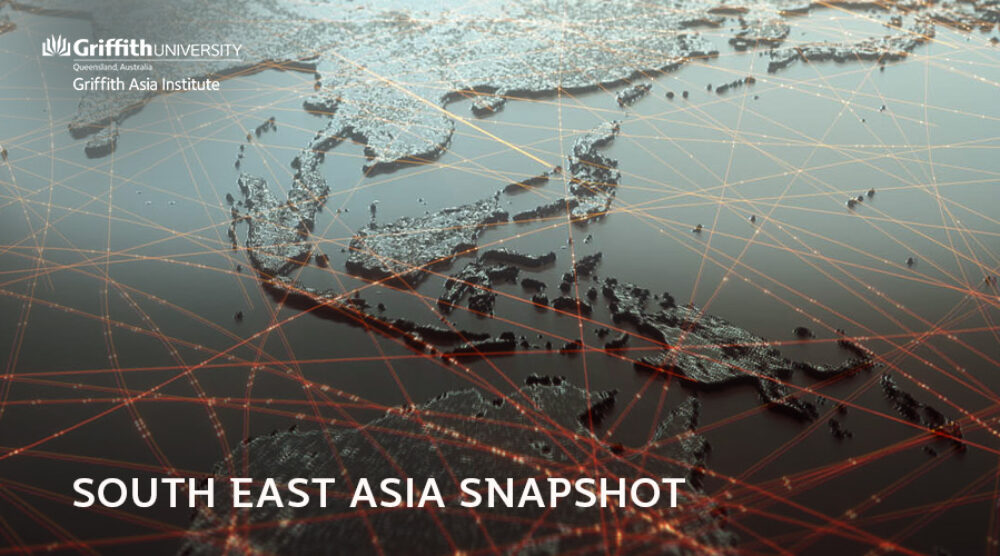A fortnightly snapshot of what’s making headlines in South East Asia.
Pro-democracy movement gains momentum in Bangkok
Pro-democracy protests peaked last week, as tens of thousands rallied in Thailand’s capital near the Grand Palace demanding reform to the monarchy and constitution. What began in mid-July as student-led demonstrations have now been endorsed by the country’s ‘red shirt’ movement, signifying the movement’s broader appeal. September 19 marked fourteen years since Prime Minister Thaksin Shinawatra was removed in a coup, which sent the country into consecutive years of political disarray. The country’s controversial King Maha Vajiralongkorn has been largely absent from the country since demands to curb his power and remove former coup leader Prayuth Chan-ocha as prime minister. Authorities appear to be demonstrating patience, with none of the arrested protestors charged under Thailand’s lese masjeste laws to date. A plaque installed by pro-democracy leaders declaring “this country belongs to the people” at Bangkok’s Sanam Luang was removed mysteriously.
Duterte defends drug war and the Philippine’s South China Sea claims in UN speech
True to form, President Duterte’s pre-recorded speech to the UN last week did not disappoint. Duterte described the landmark 2016 ruling that refuted the legal basis for nearly all of China’s expansive maritime and territorial claims in the South China Sea as “beyond compromise”. Some are suggesting that this points to a hardening position from Manila towards Beijing. The outspoken President however remained firm in his defence of his controversial drug war, stating that the “Philippines will continue to protect the human rights of its people, especially from the scourge of illegal drugs, criminality and terrorism”. The devastating human and economic impact of COVID-19 on the Philippines was underscored in Duterte’s praise of the UN’s coronavirus relief fund and withholding of his criticisms towards the organisation.
Annual ASEAN foreign ministers convene online
COVID-19 prevented current ASEAN chair Vietnam from welcoming the region’s 10 foreign ministers to Hanoi. Instead ASEAN’s foreign ministers convened online to discuss the pandemic, territorial disputes in the South China Sea and the ongoing plight of Rohingya refugees. The joint communique underscored the bloc’s position on recovery from the COVID-19 pandemic, information sharing in pursuit of research, development and delivery of a vaccine, and the resumption of cross border movement. Geopolitical tensions in the region were highlighted in the opening remarks by Vietnamese Prime Minister Nguyen Xuan Phuc. The series of digital diplomatic summits concluded with its 27th ASEAN Regional Forum, which stressed ASEAN’s shared commitment to tackling the coronavirus, ongoing dialogue towards the denuclearisation of the Korean peninsula, peace and stability in the South China Sea and recognising the importance of ICT tools to aid economic growth.
Indonesia establishes special ‘behavioural units’ to combat low COVID-19 awareness
According to Indonesia’s Health Ministry, many Indonesians do not believe that COVID-19 exists. In response to low levels of awareness and challenges to public health protocols, multiple behavioural units have been deployed across select districts in Jakarta to educate people about the virus and reinforce the need to follow health protocols. Tensions remain acute between the various levels of government, as well as intense public debate over Indonesia’s handling of the pandemic. Reports surfaced of anti-maskers being forced to dig graves of coronavirus victims in East Java. Indonesia continues to have the highest COVID-19 death toll in all of South East Asia.
AUTHOR
Dr Lucy West is a Senior Research Assistant at the Griffith Asia Institute.








